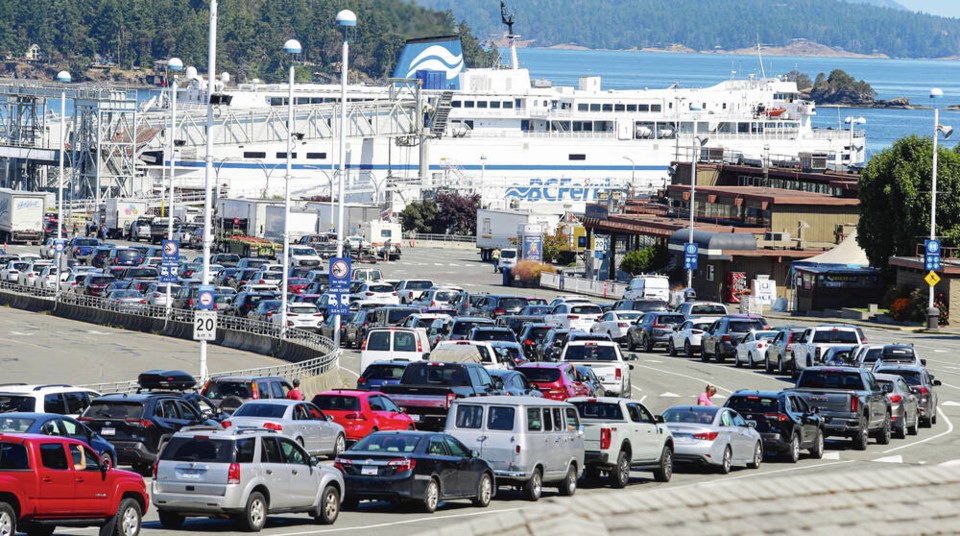B.C. Ferries has introduced a new policy prohibiting tow trucks from carrying non-operational electric vehicles aboard its vessels, citing concerns about damaged lithium-ion batteries and their potential to combust.
Johnathan Vipond, owner of Salt Spring Island Towing and Recovery, said he received an image of the memo informally on Friday and had his first EV denied boarding the next day.
He said he “fully agrees” with B.C. Ferries that damaged EVs pose a safety risk, but said he was surprised when the EV his company was towing was prohibited from boarding, despite not having been in an accident.
Vipond said he hopes he can work with the company to find a way to safely transport damaged EVs, since there’s no way to dispose of totalled cars on Salt Spring Island, adding that his request to bring them aboard designated dangerous goods sailings was denied.
“We need to have a solution together to get them off the island, because they’re already here,” he said.
In a memo sent to staff, the company outlines the safety risks associated with transporting damaged batteries, noting that “electric and hybrid vehicles that are defective, inoperable or damaged and not being driven under their own power” are not allowed to sail.
Dan Bird, general manager of Totem Towing, said the change will be especially difficult for those who own Rivian trucks and SUVs, a popular brand of EV that doesn’t have a dealership on Vancouver Island.
“It’s going to be very frustrating for our customers,” he said, adding that a Rivian vehicle with any issues must be towed to Vancouver for servicing.
Bird said he understands the safety issues associated with towing damaged EVs, especially on ferries. “If [a vehicle] lights up on there, there’s no stopping it,” he said.
Peninsula Towing owner Don Affleck said the enforcement of this policy will cause a “chain reaction,” explaining that there are no disposal locations for EVs or hybrid vehicles on Vancouver Island.
He said EV owners should know that if they face car troubles after travelling anywhere that’s only accessible by ferry, their vehicle is “on Gilligan’s Island.”
B.C. Ferries spokesperson Sonia Lowe said her team is “actively working to see if safe options can be introduced,” adding that the updates to internal policy are about “safety and clarity” and follow regulations set out by Transport Canada.
The policy also states that EV charging is not permitted at terminals or on board vessels, but Lowe noted there were no charging stations in these locations before the notice.
“This policy just formalizes what’s already been in practice for safety reasons,” she said.



